Exploring the ‘Fitrah’: Insights from Imam Tahir Ibn Ashur
Imam Tahir Ibn Ashur (RA) occupies a prominent position among contemporary Maqasid scholars. Born in 1879 and passing away in 1973, he is recognized as one of the foremost authorities in Ilm-al-Maqasid, as follower of Imam Juwaini, 'Izz al-Din ibn 'Abd al-Salam, contributing significantly to Maqasid literature subsequent to Imam al-Shāṭibī (RA). Endowed with a profound grasp of the Arabic language and Islamic sciences, he played influential leadership roles in various sociopolitical upheavals in Tunisia. His seminal work, ‘Maqasid al sharia- al-Islamiyya’ (Treatise on Maqasid al- Sharia), is perceived as a logical extension and progression of Imam al-Shāṭibī's Maqasid concepts. He cultivated Maqasid studies in tandem with the dynamic political and social issues of his era, manifesting innovative ideas rooted in the Maqasidi framework. This article endeavors to elucidate Imam Ibn Ashur's contributions to the advancement of Maqasidī interpretations and notions concerning 'Hifz al-Fitrah,' which denotes the preservation of human nature.
Fitrah, a profoundly significant technical term referenced in Islamic scriptures, denotes the inherent disposition or human nature, elucidated within the Holy Qur'an on a singular occasion, specifically in relation to the essence of Islam:
"فِطْرَتَ اللَّهِ الَّتِي فَطَرَ النَّاسَ عَلَيْهَا"
"[Adhere to] the fitrah of Allah upon which He has created [all] people" (Surah ar- Rum: 30).
Repeatedly mentioned in numerous scriptural contexts, this term predominantly conveys the concept of innate or unadulterated human nature. A notable Hadith underscores this notion:
"كلُّ مولودٍ يولَدُ على الفطرةِ فابواه يُهوِّدانِه و يُنصِّرانِه و يُمجِّسانِه"
“No child is born except on the Fitrah and then his parents make him Jewish, Christian or Magian” (Bukhari, Muslim).
Scholars within the Islamic tradition have engaged in multifaceted endeavors to explicate and interpret the term 'fitrah' as mentioned in both the Holy Qur'an and Hadith. This pursuit has traversed diverse intellectual terrains, progressing from the jurisprudential delineations by ritualistic scholars to the philosophical exegeses and interpretations proffered by Qur'anic commentators like Imam Razi. Notably, among these scholars, Tahir Ibn Ashur (RA) stands as the pioneer who established and evolved the discourse on Fitrah within the realm of Maqasid, elevating its conceptual understanding within Islamic thought.
He articulates the concept of fitrah in the following manner: “It encompasses the inherent nature (khilqah) and organizational structure (nizām) that Allah has embedded within every living entity. Fitrah constitutes the intrinsic (bāṭin) and extrinsic (zāhir) facets of human formation, encompassing both mental and physical dimensions.”
Fitrah, as delineated, stands as the distinguishing factor setting human beings apart from non-human entities. It serves as the foundational wellspring from which human actions, emotions, cogitations, and other faculties emanate. Furthermore, it is posited that the 'fitrah' of humankind interrelates with and exerts influence upon the distinctive physical, psychological, and intellectual aspects of human existence. Drawing upon the teachings of Imam al-Zamakhshari, he tends to argue that the core tenets and legal framework of Islam inherently align with the inherent order governing human nature. Additionally, the interpretation is forwarded that the term 'din' within the aforementioned verse pertaining to fitrah encompasses the entirety of Islam, thereby presenting din-ul-Islam as a wholly natural system (fitriyya).
Imam Ibn Ashur also corroborates Ibn 'Atiyya's assertion that the pure fitrah of an unblemished individual potentially enables the recognition and realization of the existence of Allah, suggesting that the discovery of Allah's existence is attainable solely through the unadulterated fitrah of a human being.
Ibn Ashur asserts an unprecedented eloquence in his depiction of the congruence between Islam and the human fitrah, a proposition he claims was not articulated as persuasively by any predecessors. He delineates two dimensions of Fitrah: Fitrah Jasadiyyah (Physical Disposition) and Fitrah aq̊līã (Mental Disposition).
Fitrah Jasadiyyah pertains to the inherent nature associated with the physical and corporeal constitution of individuals. Ibn Ashur exemplifies this concept by highlighting the natural inclination of humans to ambulate using their two legs in accordance with fitrah Jasadiyyah. Conversely, actions such as attempting to walk using one's hands or employing feet to take and lift objects are deemed contrary to fitrah Jasadiyyah.
Fitrah aq̊līã, on the other hand, encompasses the mental, intellectual, and cognitive capabilities of human beings. Ibn Ashur illustrates this aspect by emphasizing that arriving at erroneous conclusions by incorrectly establishing cause-and-effect relationships or rejecting the existence of objects perceptible through the five senses contradicts fitrah aq̊līã.
Ibn Ashur vehemently avers that both human Fitrah aq̊līã and Fitrah Jasadiyyah are entirely compatible with the principles of Islam. He firmly contends that nothing within the teachings of Islam conflicts with the innate human disposition, vehemently emphasizing the harmonious coexistence between Islam and the natural state of human beings.
Ibn Ashur goes on to introduces the concept of Usul-ul Fitriyyah, signifying the entirety of attributes and endowments bestowed by Allah upon humanity, facilitating the progression of human life in this world with utmost clarity. Within his discourse, Ibn Ashur posits that the foundational principles of Islamic jurisprudence find their origins in Usul-ul-Fitrah. Emphasizing the preservation of fitrah as a paramount concern of Sharia, he asserts that human beings inherently possess Usul-ul-Fitriyyah.
A significant portion of his seminal work, 'Maqasidushari'a al-Islamiyyah', is dedicated to elucidating the overarching aims of Islamic Shari'a. These aims, commonly referred to as general maqasidī principles (ạl̊maqāṣidu ạl-ʿāmã), are universally applicable across various facets of human existence. Notably, Ibn Ashur enumerates Hifl al-Fitrah, the preservation of human nature, as the foremost among the general objectives of Islamic Shari'a.
The concept articulated by Imam Ibn Ashur concerning the preservation of human nature involves safeguarding and upholding all the constituent elements integral to fitrah. It denotes the Sharia's mandate to ensure the proper upkeep of fitrah by purifying elements tainted from their innate purity, reinstating what has been obliterated, and abstaining from accumulating detrimental influences.
Hifl- al Fitrah encompasses the protection and nurturing of the distinctive physical, mental, and intellectual aspects inherent in human beings. Within this context, the Sharia stipulates the safeguarding of human lineage through the institution of marriage, constituting a component of human fitrah. Additionally, as an integral aspect of Hifl-al Fitrah, the Sharia prohibits indulgence in substances or actions that disrupt or corrupt fitrah. Such prohibitions are designated as haram, emphasizing the obligation to reinstate and uphold fitrah. Conversely, actions or substances that do not directly impinge upon or compromise fitrah are permitted within the Sharia framework.
Subsequent scholars following in the footsteps of Ibn Ashur further expounded upon the notions surrounding Hifl al-Fitrah. Notably, the Tunisian scholar Abdel Majeed Najjar, in his work 'Maqasidushari'a bi Ab'adin Jadida', extends Ibn Ashur's concepts. Najjar introduces 'Hiflu Insaniyat-ul Insan' or the ‘preservation of humanity’ as a significant objective of the Sharia. He advocates the preservation of the elements constituting humanity as a pathway toward preserving humanity. Furthermore, he underscores that the foremost element among these constituents is human nature.
References:
Surah ar –Rum: 30, Tafsir al-Qurtubi
Sahih Muslim, 2658b Book 46, Hadith 34
Ibn Ashur: Treatise on Maqasid Al-Shariah, IIIT, 2006, ISBN 1565644220, 9781565644229
The Maqasid Thought of Ibn ‘Ashur and Development of Interdisciplinary Islamic Studies: Searching for the Correlation of the Concept, Mohamad Anang Firdaus1, https://eudl.eu/pdf/10.4108/eai.11-11-2020.2308298
Why Ibn Ashur sorted out maqasid from usul-ul fiqh, https://www.youtube.com/watch?v=Ao9agu9A1s8
About the author;
Unais Kashmiri is a PG Research Scholar in Islamic Thoughts and Modern Trends in Islamic Studies at Darul Huda Islamic University, Chemmad. He currently works as a freelance content writer for 'The Muslim Vibe', an online academic journal based in California, USA.
Disclaimer
The views expressed in this article are the author’s own and do not necessarily mirror Islamonweb’s editorial stance.

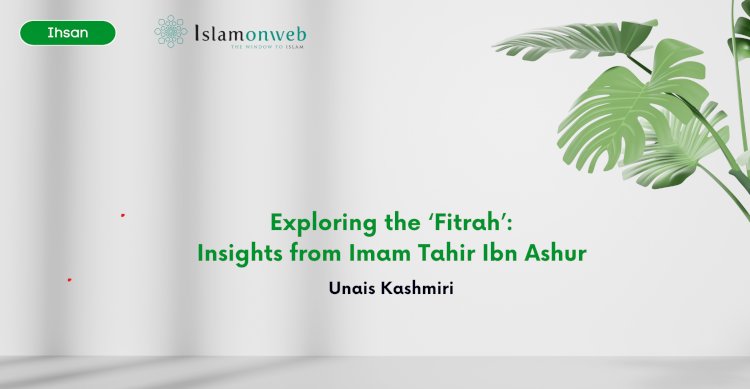


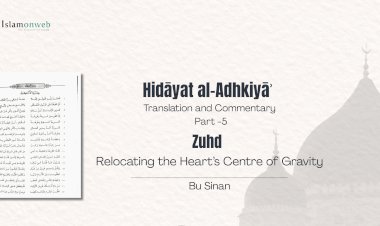


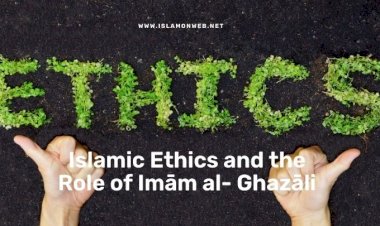
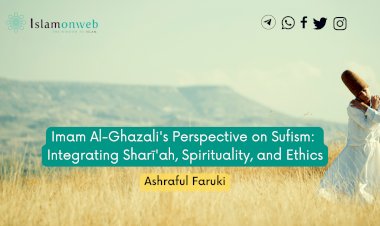
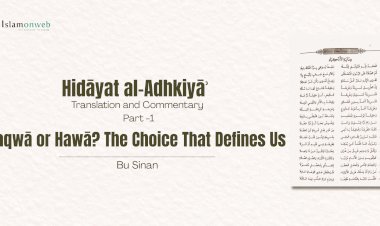














Leave A Comment